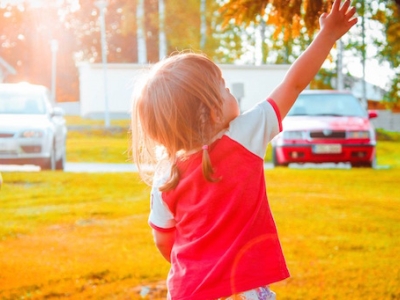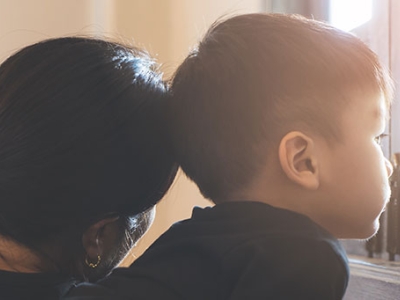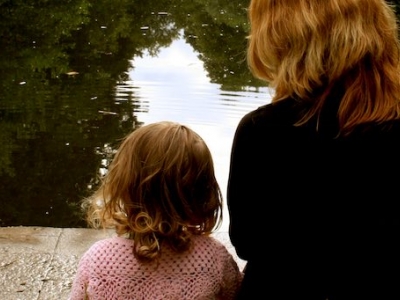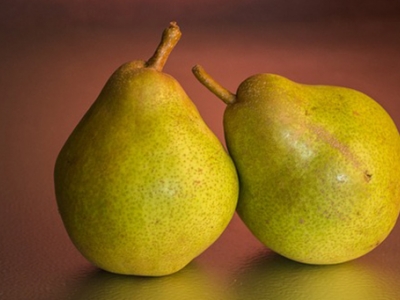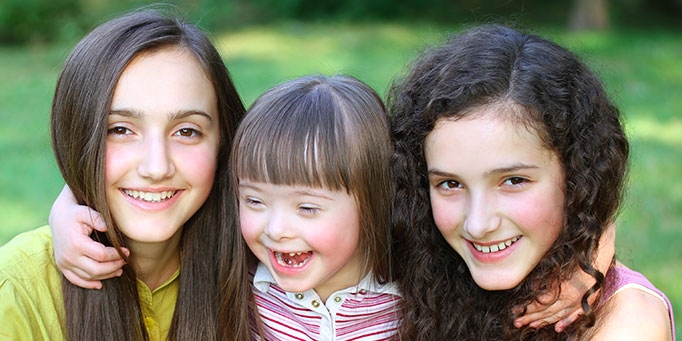
When it comes to disability, don’t forget the siblings
Bec Baines explains what it’s like and how to help.
What is it like being a sibling of a person with disability? What is it like to experience the intensity of caring for someone with a disability from a young age? What happens when your own needs and desires are put on hold and you face the possibility of becoming a carer for your sibling with disability?
Some people may overlook siblings—after all, they don’t have a disability and seem to manage their own daily routines just fine. But siblings also need support, just in a different way. So, how do we support and care for them?
My experience as a sibling
Growing up, I had an adoptive brother with Downs Syndrome. I was seven and he was six months old when he came to our family, and he was a delight. My older brothers and I would always argue over who got to help with his daily routines. I distinctly remember car trips when we would be blasting a Wiggles cassette and singing along to entertain him, delighting in the joy that he had in singing and dancing. My brother’s natural disposition was to be happy and kind; as siblings, we always wanted what was best for him. We had a high concern for his medical needs—any time we had to rush to emergency, we made sure that he had his favourite toys packed and insisted on staying with him until he was either home again or given a bed on the ward.
When I was 19, a six-year-old boy came to live with my family as my foster brother. He is autistic and over the years also developed other health issues and additional diagnoses. He is non-verbal and had stayed in a few different households before coming to stay with us. My parents did the best they could to ensure that my foster brother felt safe and at home. His stay with us brought about various challenges; there was a lot to adjust to. At times, he was violent and destructive. Doors had locks installed, cupboards needed child-safe mechanisms, enticing food had to be prepared when he wasn’t around … it felt like the definition of ‘This is why we can’t have nice things’.
Siblings are affected in different ways
From the outside looking in, it can seem like all members of the household have the same experience of living with a child’s disability, particularly if it presents as a positive experience. Many families may want to protect what happens in the household, choosing not to share the details of any struggles. Within these households, there can be varying experiences. One sibling may not be negatively affected by having a sibling with disability and may even go on to have a career that involves caring for others and helping people (such as health care, emergency services or social work). But other siblings may struggle, whether that be because they have experienced violence from their sibling with disability, extra expectations either to help out or manage by themselves, or even missing out on something they wanted or needed. These siblings sometimes withdraw and detach themselves from the family, have increased mental health issues, and feel resentment towards their family or the sibling with disability.
Family dynamics are complex—and never perfect. So an individual may have a mix of negative and positive feelings and experiences in their family. Siblings in particular are always acutely aware of the needs of their brother or sister with disability, and they may either feel joy or the sting of the hardships—or both.
How the church can help
Of course, parents are immensely aware of the hardships that siblings face, and the fact that they don’t get to spend as much time with them. Parents are also greatly appreciative of their children showing support, patience and love during challenging times. Parents yearn to spend more time with the siblings as they grow and navigate life; they want to take delight in their child’s interests and achievements.
Parents may not always feel like they can or should reach out for support. That’s where the church can help, as we partner with families living with disability, connecting, supporting and helping out in various ways.
Some ideas include:
- Offering to take care of a child with disability for a few hours to free up parents to spend quality time with siblings or run errands, such as buying new shoes or clothes.
- Inviting siblings over for a play date/hang out with peers so that they can enjoy some downtime or activities they might not get a chance to do in their own home.
- Taking a sibling on a family day out or even a holiday. Many siblings would love to have more of a carefree time out or away when they’re not needing to make concessions for the child with disability.
- Offering to teach skills to siblings like sewing, woodwork, driving or baking. This might be a lovely opportunity for them to develop new skills and interests.
- Offering to carpool so that each child can get to their destination on time, especially when children go to different schools or extra curricular activities.
- In church ministry groups, allowing for siblings to have their own spaces or groups, rather than being relied upon to help with their sibling.
- Giving space for siblings to share openly about their feelings and experiences without feeling dismissed.
- If there are a number of families in the church who have kids with disability, consider a support group or Bible study for the siblings.
- Praying for the siblings. Pray for good family relationships and understanding. Pray that the siblings continue to know the Lord and rest in his unfailing promises.
These are some practical ways to support siblings in one way or another. Why not make time to chat with their parents and find out how you and others could be of help.
Supporting siblings in families with disability is just another way that the whole church family can continue to love, serve and support each other as we grow in Christ’s love for us.
---
Bec Baines works with Youthworks’ Ministry Support Team as the first ever Accessibility Ministry Advisor for the Sydney Anglican Diocese.
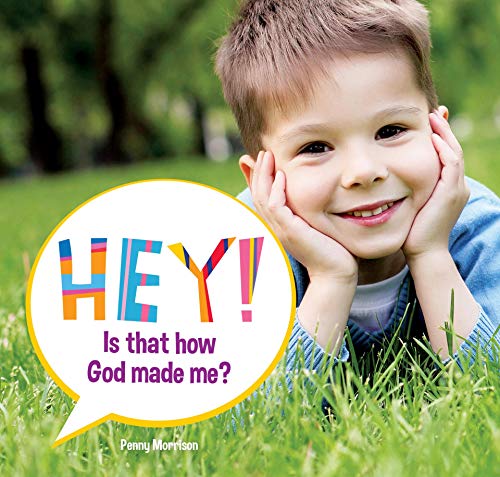
Hey! Is That How God Made Me?
From the youngest age, our children should know that they belong to God! He made them in wonderful detail-right down to the shape of their eyes, ears, nose and mouth.
For more articles from Growing Faith, subscribe to our monthly e-newsletter.
To hear about the latest books and resources from Youthworks Media, subscribe here.


